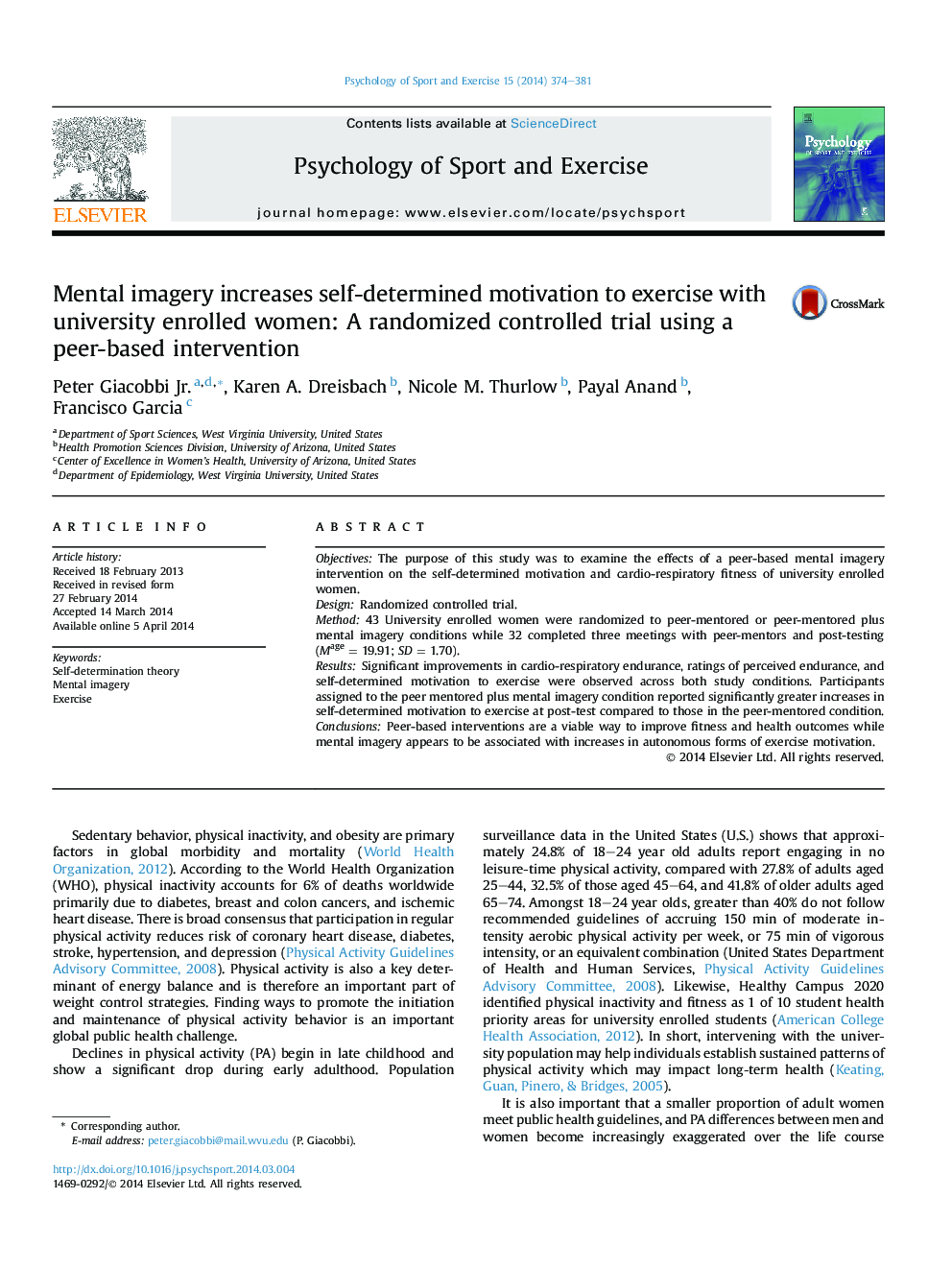| Article ID | Journal | Published Year | Pages | File Type |
|---|---|---|---|---|
| 894395 | Psychology of Sport and Exercise | 2014 | 8 Pages |
•Randomized controlled trial was conducted to test the impact of mental imagery on fitness and motivation of college women.•This peer-based intervention improves cardio-respiratory endurance for those in both study conditions.•Participants exposed to mental imagery had significantly greater increases in motivation to exercise compared to controls.
ObjectivesThe purpose of this study was to examine the effects of a peer-based mental imagery intervention on the self-determined motivation and cardio-respiratory fitness of university enrolled women.DesignRandomized controlled trial.Method43 University enrolled women were randomized to peer-mentored or peer-mentored plus mental imagery conditions while 32 completed three meetings with peer-mentors and post-testing (Mage = 19.91; SD = 1.70).ResultsSignificant improvements in cardio-respiratory endurance, ratings of perceived endurance, and self-determined motivation to exercise were observed across both study conditions. Participants assigned to the peer mentored plus mental imagery condition reported significantly greater increases in self-determined motivation to exercise at post-test compared to those in the peer-mentored condition.ConclusionsPeer-based interventions are a viable way to improve fitness and health outcomes while mental imagery appears to be associated with increases in autonomous forms of exercise motivation.
